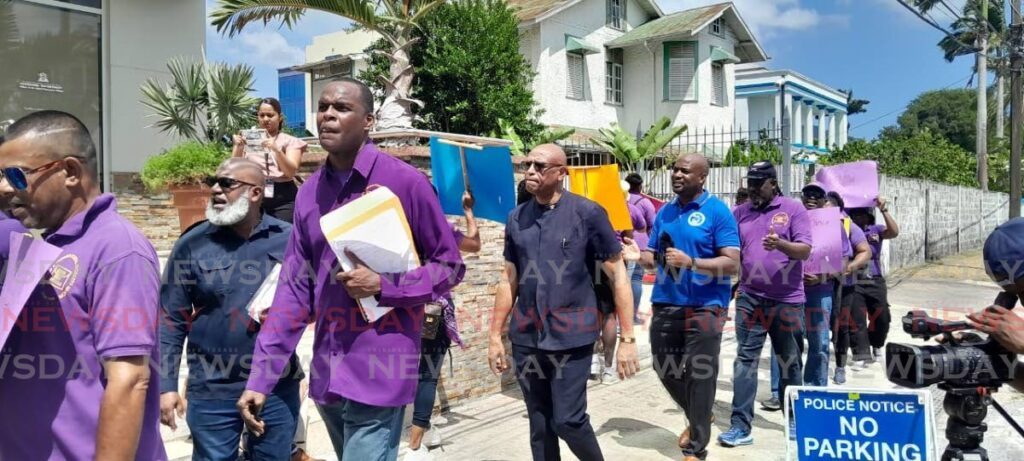The penalties of illegal strike action

In last week Thursday's Newsday, there was a full-page article on page nine titled, Give us Salary Increases, which included a colour photo of men wearing Postman’s Union t-shirts.
Two were carrying placards and three men in the usual OWTU executive uniforms were up front. I recognised Ozzie Warwick and of course, Ancel Roget. I couldn’t make out the identity of the third man. A very determined David Forbes, secretary general of the Postman’s Union, with a serious expression on his face, chin jutting out, stood in front.
This was the second union ultimatum to hit the press that week.
The first was a headlined ultimatum from SWWTU – warning the Port of Spain port manager, Lyle Alexander, or was it the Minister of Transport Rohan Sininan, or both? I forget.
In both cases, the unions’ public relations departments have done a commendable job in making their demands known. And in both cases, they used the familiar schoolyard threat: "Do what I say by...or else."
The blank, when it was used in the schoolyard – when one tough boy wanted lunch money from someone he suspected had some of his own – was, and for all I know still is, "Tomorrow, or else."
In the case of both unions, the time limit was seven days, as they were demanding promised wages and benefits long ago granted in negotiations.
They did not specify what would happen if their demands were not met within that time. The implication, with public and essential services, is threatened strike action.
In the case of a postal strike, sadly, it would be those not wealthy enough to afford online correspondence who would suffer the most. Also, those who are too old, or without the educational opportunities to have learned to use the internet.
In the case of port workers, withdrawing cargo handling services would affect the entire country.
Both postal and port operations, however, are termed essential services under the Industrial Relations Act, and are therefore banned from taking strike action, because they are deemed to be necessary for the economic and social well-being of the people of TT. They are prohibited from taking strike action under Section 36, sub-section 5, of the act, which reads: "A trade union or other organisation, the holder of an office in a trade union or other organisation, or any other person who calls for, or causes industrial action to be taken in an essential service, or induces or persuades any worker in that service to take such action is liable on summary conviction in the case of a trade union or other organisation to a fine of $20,000 and the board may cancel the union’s certificate of recognition."
The act goes on to fine a holder of an office in a trade union for calling, inducing or persuading any person to strike to a fine of $10,000 and imprisonment for 12 months and to being banned from such office for five years, and to an individual who takes such action to a fine of $2,000 and imprisonment for 12 months.
The act goes even further, stating that an individual who financially supports such strike action, or even if a company supports such action, is deemed guilty.
“Any person who at the time of the commission of the offence was a director, general manager, secretary or any other employee of the company, not being a worker or purporting to act in any such capacity, shall be deemed to be guilty of that offence unless he proves that the contravention was committed without his consent or connivance and that he exercised all such diligence to prevent the commission of the offence as he ought to have exercised having regard to the nature of his functions in that capacity and to all the circumstances."
The legalese for "they knew what was going on was illegal but didn’t try to stop it," a basic obligation of citizenship, as the Prime Minister and the Commissioner of Police keep reminding us.
It is important to note, however, that these penalties can only take place "upon summary conviction," which provides a kind of saving clause to protect those accused of breaking the law.
This is not solely because it involves the penalty of imprisonment but fundamentally because it provides each of the accused with the chance to speak in his or her self-defence. This is such a fundamental human right that it should be part of every child's civic or social development in every school from kindergarten on up, not only in theory, but taught via role-playing on how to defend themselves when falsely accused, and how to spot a false defence or counter-accusation in others.


Comments
"The penalties of illegal strike action"